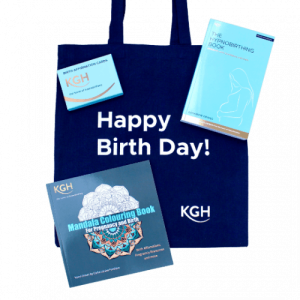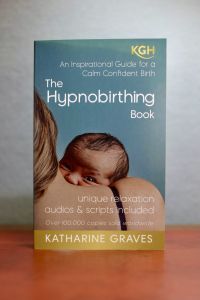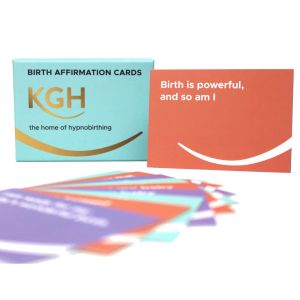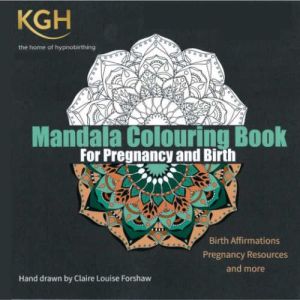When you are pregnant you will hear about vitamin K. Some mothers first hear of this after birth and are asked to make a decision on the spot when they have just given birth, so it makes sense to think about it now while you have time to consider the information. You may not really know exactly what it is. Synthetic vitamin K is offered to all babies, in the form of an injection or an oral dose, and you have a choice to make whether you give this to your baby or not.
So what actually is vitamin K?
Vitamin K is an essential vitamin which helps our blood to clot and therefore prevents serious bleeding. All babies are born with lower levels of vitamin K, compared to older children and adults, but one thought is that this may be physiologically normal, as babies are physically smaller to start with. Vitamin K thickens the blood by helping it to clot, but as babies have tiny capillaries to infuse their organs, the fact their blood is thinner at birth could just be the way the baby’s body is designed to facilitate normal blood flow. We just do not know.
The haemorrhage of concern is brain haemorrhage. This can lead to brain damage or even death. It is extremely rare, occurring in 1 in 10,000 births for those not being given the dose (McNinch and Tripp 1991, et al). It is called Vitamin K Deficiency Bleeding (VKDB).
Years ago, only babies who were at risk of any bleeding or bruising during the birth such as from forceps, vantouse or a caesarean section, were offered synthetic vitamin K. Currently in the UK, a dose of synthetic vitamin K is offered to prevent VKDB irrespective of mode of birth. You can choose to give this in the form of an injection within the first few hours of birth, or an oral course which must be completed in full over several weeks. You can, of course, also decide not to give vitamin K to your baby at all.
According to AIMS (The Association for Improvements in the Maternity Services) many midwives consider vitamin K unnecessary if there has been no trauma during labour or birth.
What are the complications of VKDB?
Although VKDB is very rare, it can be catastrophic. If babies who get this are treated quickly, they will recover, however some babies can have permanent damage and, very rarely, a baby will die. Some babies may experience excessive bleeding due to vitamin K deficiency following an operation such as circumcision and, in this case, babies can lose a dangerous amount of blood.
How common is VKDB?
Because synthetic vitamin K is given to so many babies, and on top of that, VKDB is so rare anyway, it is difficult to know how common the disease is. There are three recognised types of VKDB:
- Early Onset, which occurs within 24 hours of birth
- Classic Onset, which occurs 2-7 days after birth (some researchers define classic onset as 2-14 days after birth)
- Late Onset, which occurs between 8 days and 3-4 months after birth (or 2 weeks onwards for those who define classic onset as being 2- 14 days after birth).
Early Onset VKDB is almost always caused by medications taken by the baby’s mother such as some epilepsy drugs, and anticoagulants which have passed to the baby before they were born and stopped the baby’s body from being able to clot their blood properly. It is the Classic Onset form of VKDB for which artificial vitamin K supplementation is most effective – almost all babies who are given the supplement do not experience VKDB. Late Onset VKDB is often caused by an underlying problem in the baby such as a liver condition, but, for most babies, vitamin K supplementation at birth stops Late Onset VKDB. (Source, AIMS: 2019)
According to the latest AIMS report, these figures show the number of babies who experiences VKDB when NOT given the dose (this comes from various studies and refers to developed countries like the UK):
1/10,000 (McNinch and Tripp 1991, Von Kries and Hanawa 1993, Passmore et al 1988)
5.8 to 17.8/100,000, which is between 1/17000 and 1/5500, so consistent with the 1/10000 quoted (Sanker 2016)
1/14,000 – 1/25,000 (which is also consistent with the above numbers), is the incidence of LATE onset only, not early onset or classic onset (Shearer 2009)
What if I decide not to give my baby vitamin K?
You should have been given all the balanced information from your caregivers during pregnancy in order to make the informed decision to give or refuse the vitamin K dose. They should not try and force or coerce you into changing your decision and, should they do so, you can remind them of their obligations to provide information and support your decision.
What are the signs to look out for if I do not give my baby the vitamin K dose?
If you choose not to give your newborn the vitamin K dose, you should also be given information on what to look out for in case your baby is one in several thousands who experiences unexpected bleeding (VKDB).
You should seek immediate midwifery or medical advice if your baby shows any of these signs:
- Active bleeding from nose, mouth, gums, cord stump, or site of heel prick test
- Blood in nappy, urine, poo or vomit, even if only a pink spot
- Any unexplained bruise
- If baby’s softspot (fontanel) seems to be a different shape
- If baby is irritable, vomiting or has paler skin that usual. Or paler gums in dark skinned babies
(Source: sarawickham.com)
As with everything related to your pregnancy, your birth and your baby, there are no easy answers when making the decision to give or not give your newborn vitamin K. If anyone tells you there is only one course of action to take for the welfare of your baby, this is seldom true. There are many factors to be considered so always research everything, and weigh up the risks and benefits of all options with statistics and evidence. Once you have all of the facts, you can then make your own informed decision based on your views and own circumstances.
Extra reading
AIMS have recently released this updated article “Vitamin K and your Newborn Baby”: Essential reading for all parents-to-be. Helping you make the right decisions for you and your baby.
I also recommend every parent to buy and read Sara Wickham’s book “Vitamin K and the Newborn” before your baby is born. This gives you the facts, the statistics and the research that you can make an informed choice about what is right for you and your baby.









